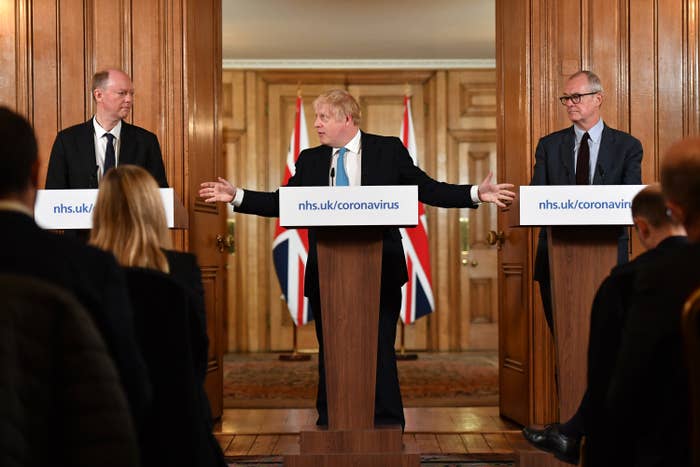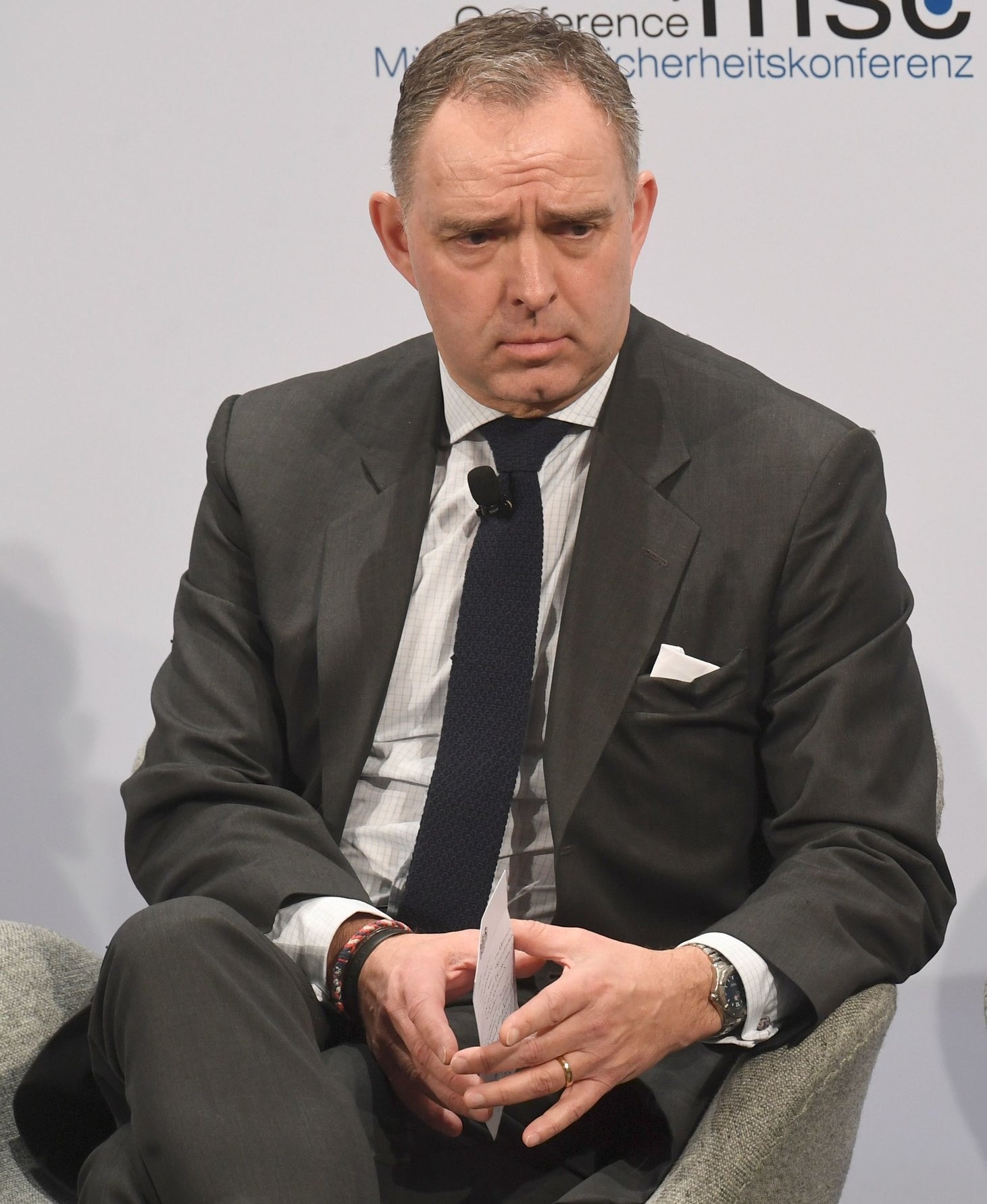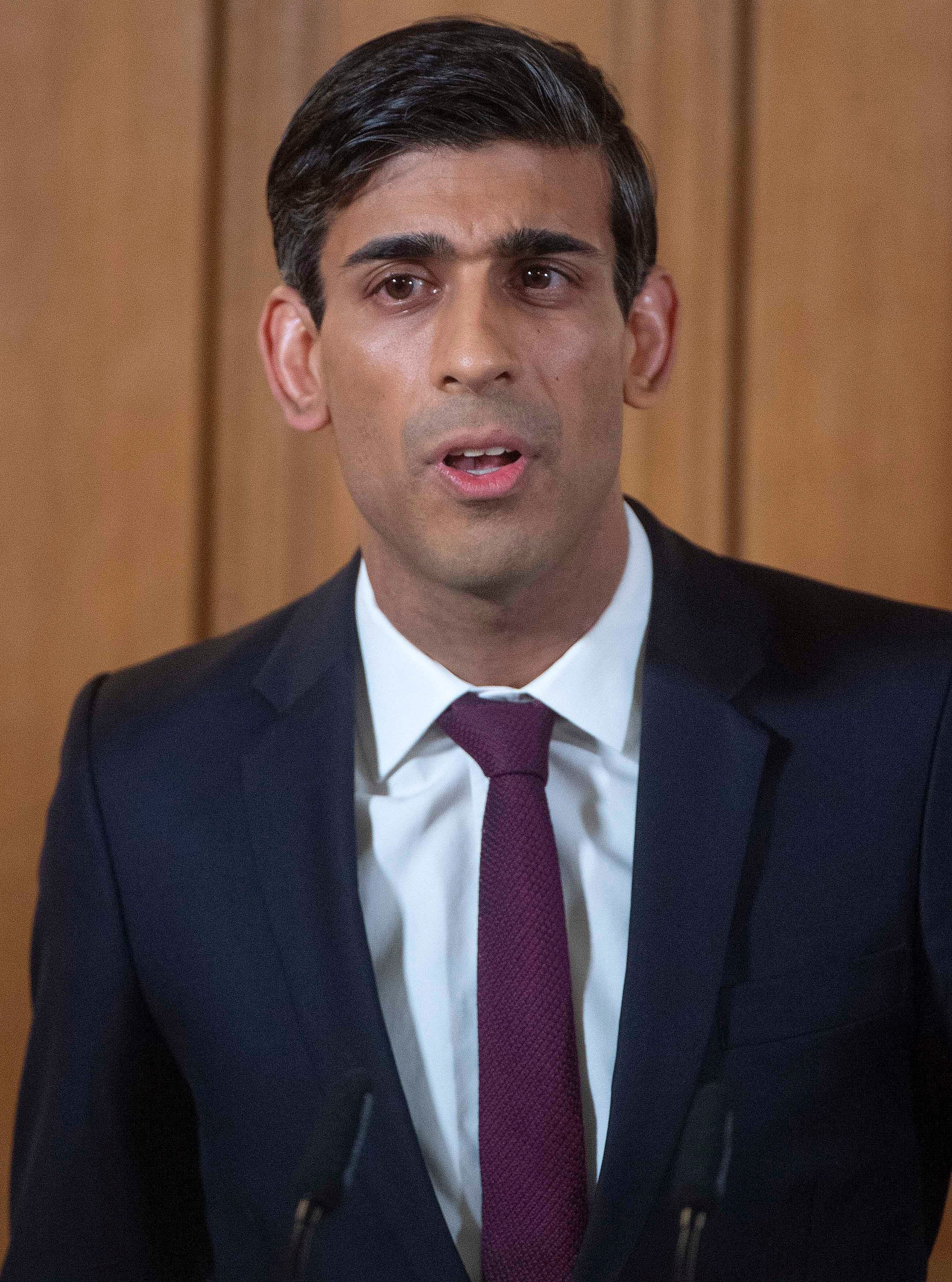
It was on Wednesday, March 11 — 10 days ago — that some of the experts on the government’s Scientific Advisory Group for Emergencies began to realise that the coronavirus was spreading through the UK too fast for the NHS to cope.
Over the next few days, Britain’s leading epidemiologists were embroiled in a series of extremely tense — and until now private — discussions among themselves, with the UK’s chief scientific adviser, Patrick Vallance, and Boris Johnson’s government over what to do.
There was no consensus. Several of the scientists frantically argued that the UK must immediately introduce social distancing to halt the spread of the virus. Some pleaded with the government to change tack or face dire consequences.
But others continued to believe that introducing social distancing now would be unsustainable for a long period and would lead to a more disastrous second wave of infection.
The dayslong debate between the experts themselves and with the government was “heated” and “extremely difficult”, multiple sources familiar with the discussions told BuzzFeed News. Vallance admitted as much at a health select committee hearing this week: “If you think SAGE is a cosy consensus of agreeing, you're very wrong indeed”.
The extent of the disagreement between the nation’s top scientists and the government can be revealed at the end of one of the most extraordinary weeks in modern British history.
As chancellor Rishi Sunak unveiled an unprecedented package of state intervention in the economy, and Johnson enforced the closure of pubs, restaurants, theatres and gyms, it also emerged that: Ministers have criticised the prime minister's senior aides for “outsourcing” leadership on the coronavirus to a small group of experts; Downing Street is still considering a partial lockdown of London in the coming weeks; and cabinet secretary Mark Sedwill introduced a series of new Whitehall structures after concerns that the government was acting too slowly on both its health advice and its economic response.

While the scientific debate was raging last week between experts, officials, and ministers in face-to-face meetings and over emails and text messages, Johnson’s government was publicly insisting that the scientific advice showed the UK did not yet have to bring in more stringent measures to fight the virus.
Political aides tacitly criticised other countries who had taken more dramatic steps, claiming Britain was being “guided by the science” rather than politics.
Towards the end of last week, some ministers and political aides at the top of the government were still arguing that the original strategy of home isolation of suspect cases — but no real restrictions on wider society — was correct, despite almost every other European country taking a much tougher approach, and increasing alarm among SAGE experts.
The thought of months or even a year of social distancing was simply not feasible, some in Johnson’s team still thought at that point. They continued to privately defend the controversial “herd immunity” approach outlined to the media by Vallance, even as other aides scrambled to claim the UK had never considered it to be policy.
And there was fury behind the scenes among members of Johnson’s team at the likes of Rory Stewart and Jeremy Hunt, who had been publicly saying the government had got it wrong.
But data from Italy — presented to the government before it was published by experts at Imperial College on Monday — changed all that. Their report confirmed the earlier fears of the epidemiologists who had been calling for more drastic action.
It showed that the NHS would indeed soon be overwhelmed if the UK’s “mitigation” strategy continued. The country had to move right away to a “suppression” approach with much more social distancing and restrictions on normal life, Imperial concluded.
Vallance and Johnson accepted the chilling findings and the prime minister finally advised social distancing on Monday. The experts who had been demanding this for days wondered what the lost time would mean in terms of deaths.
They also raised concerns that the government must be completely transparent with the public, questioning why Vallance later chose to describe the difference between the mitigation and suppression strategies as “semantics”. “This will all come out in the mother of public inquiries,” a source said.
"If you want to know how much we underestimated this, last Wednesday Rishi's budget gave a £30 billion stimulus for the economy, six days later he had to spend another £330 billion," said a Whitehall official.
Allies of Johnson strongly defended his performance over the last two weeks to BuzzFeed News. They said no British government since the Second World War had been forced to deal with a crisis on this scale, and stressed that both the volume of decisions that had to be taken and the enormity of those decisions meant that they could not get everything right straight away.
Johnson’s own personal views on the role of the state have also been a major factor, according to those familiar with his thinking. The prime minister has held deep ideological reservations about turning Britain into an effective police state, as some other countries have done. On Wednesday, Johnson told a press conference that the UK was a “land of liberty”, but warned he would take further measures to enforce social distancing if necessary.
A lockdown at least in part reminiscent of what has happened in Italy and France is still being considered at the top of government if the situation worsens in the weeks ahead, despite Downing Street denying that it would happen. “This will be the hardest decision he will ever make,” a source said of the PM.
While the crisis that Johnson faces is undoubtedly unprecedented, there is significant criticism of Number 10’s handling of the situation across the government and the Conservative Party.
Chief among them is the view — expressed by several ministers and Tory MPs to BuzzFeed News over the last few days — that Johnson and his chief aide Dominic Cummings have effectively “outsourced” the government’s decision-making process to Vallance, the chief medical officer Chris Whitty, and a small team of scientific advisers.
While Downing Street’s deference to the experts won plaudits early on, this approach has turned out to be lacking, the ministers and MPs said, because the scientists themselves disagreed on what to do. One minister said that it was then the political responsibility of Johnson and Number 10 to decide which scientists to back, but described a “vacuum of leadership” among aides.
The minister told BuzzFeed News that Cummings and Vallance were “close allies” and claimed the government had “bet” the future of the UK on advice from a very small group of scientists that for a long time differed from the wider international consensus, and other members of SAGE.

They said they had been reassured that Sedwill had taken on a greater role in setting up new structures to manage the crisis over the last few days.
On Tuesday, the cabinet secretary established four implementation committees — chaired by Sunak, health secretary Matt Hancock, foreign secretary Dominic Raab, and Michael Gove — to form a "war cabinet" that is providing greater political and civil service support to the experts and Number 10. Senior officials from across Whitehall have been drafted in by Sedwill to head up work on the coronavirus.
The new structures have begun to improve the government's response, insiders said, but there is a general belief that this should have happened days or even weeks earlier — and if it had, Johnson and Sunak would have been able to announce this week's health and economic measures sooner and in a more joined-up way.
One cabinet minister said that the culture instilled by Johnson’s Downing Street operation had not helped in terms of quickly and smoothly implementing radical policy changes, suggesting that the personal style of some aides had made it harder for issues to be raised internally.
Widespread disquiet at the slow pace of the government’s response to coronavirus blew into the open on Thursday, as Tory MP after Tory MP stood up in the House of Commons to lambast the Treasury for taking too long to announce safeguards for workers, businesses and those on benefits.
While French president Emmanuel Macron announced a full package to safeguard his economy largely in one go, it took Sunak five days to come up with Britain’s own response.

The government’s failure to announce a full suite of economic measures simultaneously to Johnson’s statement on social distancing on Monday, coupled with Sunak’s statement on Tuesday missing out measures on wages, as well as the further delay on that announcement to Friday, had likely led to thousands of layoffs across the country, the cabinet minister said.
Even the massive economic package for workers and businesses eventually delivered by Sunak on Friday is not complete. There is a growing Tory backbench rebellion on the lack of measures aimed at self-employed people. MPs expect Sunak to have to “go further” once again next week to protect the self-employed.
Despite the prime minister’s praise for Londoners, there is increasing concern in Downing Street the public is so far not heeding his advice to avoid unnecessary social gatherings.
It is believed that in particular, millennial men have been the worst offenders at failing to reduce their contact with other people, continuing to visit pubs, travel widely, and take part in other social events, despite being told that doing so risks the lives of the elderly and vulnerable.
On Wednesday, health minister and recent coronavirus sufferer Nadine Dorries blasted the "selfishness" of Londoners who have been failing to follow social distancing advice.
But there is also criticism within government of Downing Street’s messaging. While France and Italy used the law to enforce social distancing, and Australian prime minister Scott Morrison gave an impassioned speech telling people to stop hoarding, Johnson gave a press conference on Thursday where the cut-through message was one of optimism that coronavirus can be defeated, rather than a stern order about the nation’s behaviour.
The length of time to announce measures has also inevitably resulted in widespread speculation about what is coming next, which in turn has led to increased panic-buying from some sections of the public.
Some ministers want Johnson to deliver a starker warning to the country about how difficult life is about to become in the UK over the next few weeks.
“This is going to get much, much worse, very quickly, both in terms of deaths and the economy,” the cabinet minister said. “It will not be long before we are getting numbers like Italy. I don’t think people realise that yet.”

